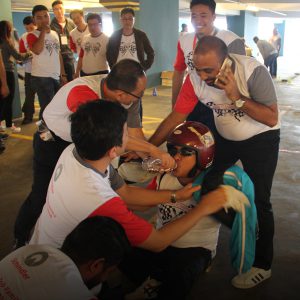OBJECTIVES
The workshop will help participants work towards being that unforgettable person by providing communication skills, tips on making an impact, advice on networking and starting conversations and more importantly, closing a sale. The objectives of this training program are to enable participants to:
-
- Make an impact through powerful first impressions
- Understand the difference between hearing and listening
- Know some ways to improve the verbal skills of asking questions and communicating with power.
- Understand what is ‘non-verbal communication’ and how it can enhance interpersonal relationships.
- Identify the skills needed in starting a conversation.
- Identify ways of creating a powerful introduction, remembering names, and managing situations when you’ve forgotten someone’s name.
- Develop closing techniques.
METHODOLOGY
- An active learning approach (learning by participation).
- Sessions are FUN – Practical – Applicable
- Discuss an idea, concept or issue
- Simulation exercises or activities
- Discuss results and repercussions
- Create an environment of anticipation and inspiration among the participants
TARGET AUDIENCES
Executives, Assistant Managers, Managers





